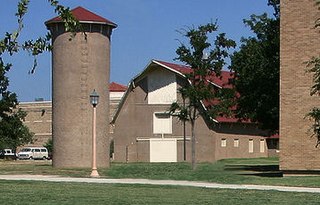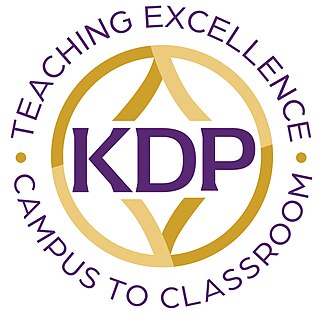Related Research Articles
In multiple countries' curriculums, social studies is the integrated study of multiple fields of social science and the humanities, including history, culture, geography and political science. The term was first coined by American educators around the turn of the twentieth century as a catch-all for these subjects, as well as others which did not fit into the traditional models of lower education in the United States, such as philosophy and psychology. One of the purposes of social studies, particularly at the level of higher education, is to integrate several disciplines, with their unique methodologies and special focuses of concentration, into a coherent field of subject areas that communicate with each other by sharing different academic "tools" and perspectives for deeper analysis of social problems and issues. Social studies aims to train students for informed, responsible participation in a diverse democratic society. The content of social studies provides the necessary background knowledge in order to develop values and reasoned opinions, and the objective of the field is civic competence.

The Jewish Agency for Israel formerly known as the Jewish Agency for Palestine, is the largest Jewish non-profit organization in the world. It was established in 1929 as the operative branch of the World Zionist Organization (WZO). The stated mission of the Agency is to "ensure that every Jewish person feels an unbreakable bond to one another and to Israel no matter where they live in the world, so that they can continue to play their critical role in our ongoing Jewish story."
GLSEN is an American education organization working to end discrimination, harassment, and bullying based on sexual orientation, gender identity and gender expression and to prompt LGBT cultural inclusion and awareness in K-12 schools. Founded in 1990 in Boston, Massachusetts, the organization is now headquartered in New York City and has an office of public policy based in Washington, D.C.
The National Council of Teachers of English (NCTE) is a United States professional organization dedicated to "improving the teaching and learning of English and the language arts at all levels of education. Since 1911, NCTE has provided a forum for the profession, an array of opportunities for teachers to continue their professional growth throughout their careers, and a framework for cooperation to deal with issues that affect the teaching of English." In addition, the NCTE describes its mission as follows:
The Council promotes the development of literacy, the use of language to construct personal and public worlds and to achieve full participation in society, through the learning and teaching of English and the related arts and sciences of language.
The Society of Hispanic Professional Engineers (SHPE) was founded in Los Angeles, California in 1974 by a group of engineers employed by the city of Los Angeles. Their objective was to form a National organization of professional engineers to serve as role models in the Latino community.

Student affairs, student support, or student services is the department or division of services and support for student success at institutions of higher education to enhance student growth and development. People who work in this field are known as student affairs educators, student affairs practitioners, or student affairs professionals. These student affairs practitioners work to provide services and support for students and drive student learning outside of the classroom at institutions of higher education.

The Council for Christian Colleges & Universities (CCCU) is a global organization of evangelical Christian colleges and universities. The headquarters is in Washington, D.C.
The Society for the Scientific Study of Sexuality is a 501(c)3 non-profit professional membership organization "dedicated to advancing knowledge of sexuality and communicating scientifically based sexuality research and scholarship to professionals, policy makers, and the general public." SSSS was originally incorporated in 1966 as The Society for the Scientific Study of Sex, but in 1996, the name was expanded to The Society for the Scientific Study of Sexuality to better reflect the wide range of members’ research interests and because the term “sex” was often interpreted narrowly to refer only to “sexual behavior.” The membership includes anthropologists, biologists, educators, historians, nurses, physicians, psychologists, sociologists, theologians, therapists, and others. SSSS produces the Journal of Sex Research, a scholarly journal currently published by Taylor & Francis.

Agricultural education is the teaching of agriculture, natural resources, and land management. At higher levels, agricultural education is primarily undertaken to prepare students for employment in the agricultural sector. Classes taught in an agricultural education curriculum may include horticulture, land management, turf grass management, agricultural science, small animal care, machine and shop classes, health and nutrition, livestock management, and biology.
The National Council for the Social Studies (NCSS) is a U.S.-based association devoted to supporting social studies education. It is affiliated with various regional or state level social studies associations, including: the Middle States Council for the Social Studies, the Washington State Council for the Social Studies, the New York City UFT Association for the Teaching of Social Studies, the Michigan Council for the Social Studies, Massachusetts Council for the Social Studies, and Virginia Council for the Social Studies. They publish several journals; their flagship publication being a peer-reviewed journal titled Social Education which, according to their website, aims to strike "a balance of theoretical content and practical teaching ideas." They sponsor the high school honor society Rho Kappa.

Teacher education or teacher training refers to programs, policies, procedures, and provision designed to equip (prospective) teachers with the knowledge, attitudes, behaviors, approaches, methodologies and skills they require to perform their tasks effectively in the classroom, school, and wider community. The professionals who engage in training the prospective teachers are called teacher educators.
Social pedagogy describes a holistic and relationship-centred way of working in care and educational settings with people across the course of their lives. In many countries across Europe, it has a long-standing tradition as a field of practice and academic discipline concerned with addressing social inequality and facilitating social change by nurturing learning, well-being and connection both at an individual and community level. The term 'pedagogy' originates from the Greek pais (child) and agein, with the prefix 'social' emphasising that upbringing is not only the responsibility of parents but a shared responsibility of society. Social pedagogy has therefore evolved in somewhat different ways in different countries and reflects cultural and societal norms, attitudes and notions of education and upbringing, of the relationship between the individual and society, and of social welfare provision for its marginalised members. Social pedagogues work within a range of different settings, from early years through adulthood to working with disadvantaged adult groups as well as older people. To achieve a holistic perspective within each of these settings, social pedagogy draws together theories and concepts from related disciplines such as sociology, psychology, education, philosophy, medical sciences, and social work.
These organizations for higher education have a common purpose and mission for advocacy in numerous areas of both institutional management and the general public interest. The organizations have specific purpose for issues from faculty unionization to public policy research and service to institutions. Most are focused on the organization and governance of higher and tertiary education, but some are involved in service and research at all levels of education.
Arts administration is a field in the arts sector that facilitates programming within cultural organizations. Arts administrators are responsible for facilitating the day-to-day operations of the organization as well as the long term goals by and fulfilling its vision, mission and mandate. Arts management became present in the arts and culture sector in the 1960s. Organizations include professional non-profit entities. For examples theaters, museums, symphonies, jazz organizations, opera houses, ballet companies and many smaller professional and non-professional for-profit arts-related organizations. The duties of an arts administrator can include staff management, marketing, budget management, public relations, fundraising, program development evaluation, and board relations.

The Association for Supervision and Curriculum Development d/b/a ASCD is a membership-based non-profit organization founded in 1943. It has more than 125,000 members from more than 128 countries, including superintendents, principals, teachers, professors of education, and other educators. The ASCD Community also includes 52 affiliate organizations, self-organized Connected Communities, and ASCD Student Chapters. While ASCD was initially founded with a focus on curriculum and supervision, the association now provides its members with professional development, educational leadership, and capacity building. ASCD is a global community advancing student achievement by supporting the whole child, and seeks to develop programs, products, and services essential to the way educators learn, teach, and lead.
The National Association of Secondary School Principals (NASSP) is a national organization of and voice for middle level and high school principals, assistant principals, and aspiring school leaders from across the United States and more than 45 countries around the world. The association currently serves more than 27,000 members.

Kappa Delta Pi International Honor Society in Education, (ΚΔΠ) is an honor society for education. It was founded in 1911 and was one of the first discipline-specific honor societies. Its membership is limited to the top 20 percent of those entering the field of education.
The Society for Developmental Biology (SDB), originally the Society for the Study of Development and Growth, is a professional society for scientists and professionals around the world whose research is focused on the study of the developmental biology, embryology, and related disciplines.
This article includes information about environmental groups and resourcesthat serve K–12 schools in the United States and internationally. The entries in this article are for broad-scope organizations that serve at least one state or similar region.

The Emporia State University Teachers College is an education college located in Emporia, Kansas, United States. It is a part of Emporia State University.
References
- ↑ "Middle States Council for the Social Studies - About". Middle States Council for the Social Studies. Retrieved 2023-02-23.
{{cite web}}: CS1 maint: url-status (link)